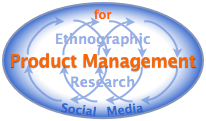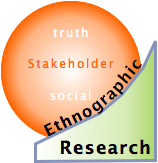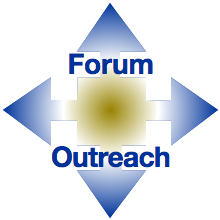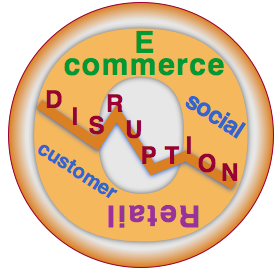 Behavioral economics autonomy and ethics is a thought experiment on how to approach “doing good” when applying the emerging practice of behavioral economics. Along with big data analytics and cognitive science, behavioral economics affords businesses, governments and other organizations unprecedented impact on individuals’ behavior, even without their consent or awareness. This arouses serious ethical and social dilemmas. Behavioral economics autonomy and ethics is a thought experiment on how to approach “doing good” when applying the emerging practice of behavioral economics. Along with big data analytics and cognitive science, behavioral economics affords businesses, governments and other organizations unprecedented impact on individuals’ behavior, even without their consent or awareness. This arouses serious ethical and social dilemmas.
Every behavioral economics practitioner I’ve met has emphasized the importance of using its practice “for good” in order to help people. Like all other human endeavors, however, “for good” is open to interpretation, so I’ll apply my experience with ethnographic and behavioral analysis of social media to reflect on what “for good” might mean in light of individual and group autonomy.
I also hope this Noodle will be food for thought for executives who hire behavioral economics firms as well as all of us who are invariably its subject. In a similar vein, most designers I know are committed to using design principles to improve user experience, and there’s considerable overlap between design and behavioral economics.
Behavioral economics is […]
 Ethnographic research for product management shows how to apply ethnographic research of social media to managing the life cycle of products and services. Ethnographic research of social media can revolutionize product management because it’s a very efficient way to study people’s behavior and motivations in each part of the product life cycle. Unlike traditional product and ethnographic research methods, which are relatively slow, costly and qualitative, ethnographic research of social media combines qualitative richness with quantitative analysis. It’s faster and less costly, too. Ethnographic research for product management shows how to apply ethnographic research of social media to managing the life cycle of products and services. Ethnographic research of social media can revolutionize product management because it’s a very efficient way to study people’s behavior and motivations in each part of the product life cycle. Unlike traditional product and ethnographic research methods, which are relatively slow, costly and qualitative, ethnographic research of social media combines qualitative richness with quantitative analysis. It’s faster and less costly, too.
This post outlines the product management use case of ethnographic research of social media. For more on ethnographic research, see its executive summary.
[…]
 [Updated] Ethnographic research of social media is one of my biggest secrets. It has become the foundation of CSRA’s ability to create trust at scale, so here I’ll share how I came to use it with social media. Then I’ll explain what ethnographic research is, why it’s vital to CSRA, and how it works, so you can use it. Finally, I’ll share use cases for experiential social media, product management, business innovation, and cross-border business. [Updated] Ethnographic research of social media is one of my biggest secrets. It has become the foundation of CSRA’s ability to create trust at scale, so here I’ll share how I came to use it with social media. Then I’ll explain what ethnographic research is, why it’s vital to CSRA, and how it works, so you can use it. Finally, I’ll share use cases for experiential social media, product management, business innovation, and cross-border business.
[…]
 The short guide to forum outreach reveals how experiential social media teams can tap forums’ unique opportunity to engage users, using a three-stage model. Forums are vital to relationship building with people with specific interests. They are consistently the most people-centric platform type according to CSRA’s research in such diverse industries as healthcare, consumer products, financial services, government, and nonprofits. As such, although they are very human and social, forums are distinct from social media, which often enables social actions oriented to content sharing and short exchanges. The short guide to forum outreach reveals how experiential social media teams can tap forums’ unique opportunity to engage users, using a three-stage model. Forums are vital to relationship building with people with specific interests. They are consistently the most people-centric platform type according to CSRA’s research in such diverse industries as healthcare, consumer products, financial services, government, and nonprofits. As such, although they are very human and social, forums are distinct from social media, which often enables social actions oriented to content sharing and short exchanges.
In some ways, forums are the polar opposite of social media because their DNA is threaded discussions, which enable long conversations among many members. Even more exciting, the most passionate members are often members of several forums that are relevant to your stakeholders and workstreams.
[…]
 This winter carries a surprising benefit of extreme weather. It has been a bit colder than usual in much of the U.S.A. due to the “Polar Vortex,” and I have observed that many professional groups in Chicago have canceled or postponed events due to “extreme weather” over the past two months. This has started to become a phenomenon, so I’ve been observing it with interest. This winter carries a surprising benefit of extreme weather. It has been a bit colder than usual in much of the U.S.A. due to the “Polar Vortex,” and I have observed that many professional groups in Chicago have canceled or postponed events due to “extreme weather” over the past two months. This has started to become a phenomenon, so I’ve been observing it with interest.
My social business client work involves analyzing digital social networks, and it constantly reveals how people affect each other’s behavior, often in surprising ways. I hypothesize that reactions to this weather phenomenon are having unintended effects, so, in the spirit of all Noodles, I’ll explore some of these deeper meanings and invite your thoughts.
[…]
Digital Transformation’s Personal Issue reveals personal treatment to be the key to breakthrough customer experience, and it shows how digital social spaces enable Chief Digital Officers to use personal treatment to create more profit. Before they arrive, though, they need to lead their organizations through the Personal Issue. 
The Personal Issue refers to a perceived conflict between empowered customers and profit-starved companies. Digital social technologies are enabling customers to “re-personalize” business and society because their online interactions among themselves are personal, which is changing their expectations of all interactions.
However, businesses resist treating customers personally because they fear cost and inefficiency. They don’t understand the digital social economics of treating customers personally online, at scale.
Meanwhile, the missions of chief digital officers (CDOs) and chief customer officers (CCOs) are creating bold new “customer experience” and profits by using digital technologies to transform organizations, brands and businesses. They will fulfill their missions far more quickly and completely by using the key.
[…]

Ron May, 1956-2013
Ron May Digital Social Pioneer, and the notorious Chicago hightech commentator and analyst, died on 23 June 2013. Since I knew Ron longer and better than many people, I’ll reflect on what I knew of his life and considerable gifts and contributions. Above all, I’ll try to convey what Ron taught me about the digital world, where he was a pioneer among pioneers.
I met Ron in late 1996 in Dick Reck’s office at KPMG, when The May Report was fledging. It was obvious that he was unusually smart and passionate and motivated, and I learned that these traits were the foundation of Ron May the person. Ron May cared, and he had strong opinions. He had a brilliant inquisitive mind and indefatigable energy. I had a few conversations with Ron about his health over the years, and I suspect that it had a large impact on how he felt and interacted in public.
[…]
Empowered customers and omni-channel commerce are mirrors of each other, and both are transforming “retail.”
 [UPDATED] Connected customers have the Internet in their pockets and use mobile and other devices in all stages of conceptualizing, considering, evaluating, buying and using purchased products and services. These customers want to interact with firms and brands in a seamless experience that features single sign-on as an entry point; they want the firm to respond using their individual data when that makes interacting more valuable. Omni-channel commerce refers to a collection of technologies, practices and strategies firms use to provide the personal individualized experience that connected customers expect. [UPDATED] Connected customers have the Internet in their pockets and use mobile and other devices in all stages of conceptualizing, considering, evaluating, buying and using purchased products and services. These customers want to interact with firms and brands in a seamless experience that features single sign-on as an entry point; they want the firm to respond using their individual data when that makes interacting more valuable. Omni-channel commerce refers to a collection of technologies, practices and strategies firms use to provide the personal individualized experience that connected customers expect.
IBM’s 2012 study of retail customers in eight mature economies (Australia, Canada, France, Italy, Japan, Spain, the UK and the USA) and seven growth economies (Argentina, Brazil, Chile, China, Colombia, Mexico and South Africa) lays bare that the retail “shopping” experience has shifted profoundly, although you wouldn’t know it by looking at most offline or online retailers’ presences. The paper, “Winning over the empowered consumer: Why trust matters,” is a call to […]
 Personal Individualized Experience is the DNA of digital transformation. It refers to using an optimal mix of people and digital technologies to provide personal interactions at scale, so it’s central to the mission of chief digital officers and CEOs and boards who hire them. Prior to digital and social technologies, organizations faced a trade-off between “personal” and “efficient” interactions with their stakeholders (customers, clients, employees, partners, regulators… hereafter “users”). Now this is no longer true; they can provide personal interactions at scale, once they learn how and where to interact efficiently and authentically. Personal Individualized Experience is the DNA of digital transformation. It refers to using an optimal mix of people and digital technologies to provide personal interactions at scale, so it’s central to the mission of chief digital officers and CEOs and boards who hire them. Prior to digital and social technologies, organizations faced a trade-off between “personal” and “efficient” interactions with their stakeholders (customers, clients, employees, partners, regulators… hereafter “users”). Now this is no longer true; they can provide personal interactions at scale, once they learn how and where to interact efficiently and authentically.
Used well, digital and social technologies retain an authentic human element while digitizing key aspects of relating to people. Therefore, organizations/firms/brands (hereafter “firms”) can now provide the Personal Individualized Experience (PIE). This post explains the three components of PIE and shows how firms can use them to build and maintain authentic and profitable relationships with users.
[…]
![Transform the Enterprise [Social Business Team Building] case5](http://rollyson.net/wp-content/uploads/2013/04/sbtb5.png) Transform the Enterprise is almost always initiated by the CEO’s office, the CDO, the board of directors or other strategic body. Its defining characteristic is enterprise transformation, using social business as a key enabler. Some of its common business contexts are: the hiring of a (new) CDO (Chief Digital Officer), which is itself a commitment to use social business for transformation; a merger, major acquisition or sale whose focus is to redefine the enterprise; “pervasive social business” that results when several of the enterprise’s brands have had some social business success that the executive team wants to scale; scaling enterprise 2.0 social collaboration technologies; self-disruption to create a new level of competitiveness. Transform the Enterprise is almost always initiated by the CEO’s office, the CDO, the board of directors or other strategic body. Its defining characteristic is enterprise transformation, using social business as a key enabler. Some of its common business contexts are: the hiring of a (new) CDO (Chief Digital Officer), which is itself a commitment to use social business for transformation; a merger, major acquisition or sale whose focus is to redefine the enterprise; “pervasive social business” that results when several of the enterprise’s brands have had some social business success that the executive team wants to scale; scaling enterprise 2.0 social collaboration technologies; self-disruption to create a new level of competitiveness.
In 2013, digital marketing and firm executives are thinking about building their internal teams to provide more continuity and scale. Transform the Enterprise also focuses on the right side of the Social Business Life Cycle, specifically on Scale and Integrate. At this point, the enterprise usually has a panoply of social business or social media resources that it wants to knit together into a […]
|
|
 Behavioral economics autonomy and ethics is a thought experiment on how to approach “doing good” when applying the emerging practice of behavioral economics. Along with big data analytics and cognitive science, behavioral economics affords businesses, governments and other organizations unprecedented impact on individuals’ behavior, even without their consent or awareness. This arouses serious ethical and social dilemmas.
Behavioral economics autonomy and ethics is a thought experiment on how to approach “doing good” when applying the emerging practice of behavioral economics. Along with big data analytics and cognitive science, behavioral economics affords businesses, governments and other organizations unprecedented impact on individuals’ behavior, even without their consent or awareness. This arouses serious ethical and social dilemmas.
 Ethnographic research for product management shows how to apply ethnographic research of social media to managing the life cycle of products and services. Ethnographic research of social media can revolutionize product management because it’s a very efficient way to study people’s behavior and motivations in each part of the product life cycle. Unlike traditional product and ethnographic research methods, which are relatively slow, costly and qualitative, ethnographic research of social media combines qualitative richness with quantitative analysis. It’s faster and less costly, too.
Ethnographic research for product management shows how to apply ethnographic research of social media to managing the life cycle of products and services. Ethnographic research of social media can revolutionize product management because it’s a very efficient way to study people’s behavior and motivations in each part of the product life cycle. Unlike traditional product and ethnographic research methods, which are relatively slow, costly and qualitative, ethnographic research of social media combines qualitative richness with quantitative analysis. It’s faster and less costly, too. [Updated] Ethnographic research of social media is one of my biggest secrets. It has become the foundation of CSRA’s ability to create trust at scale, so here I’ll share how I came to use it with social media. Then I’ll explain what ethnographic research is, why it’s vital to CSRA, and how it works, so you can use it. Finally, I’ll share use cases for experiential social media, product management, business innovation, and cross-border business.
[Updated] Ethnographic research of social media is one of my biggest secrets. It has become the foundation of CSRA’s ability to create trust at scale, so here I’ll share how I came to use it with social media. Then I’ll explain what ethnographic research is, why it’s vital to CSRA, and how it works, so you can use it. Finally, I’ll share use cases for experiential social media, product management, business innovation, and cross-border business. The short guide to forum outreach reveals how experiential social media teams can tap forums’ unique opportunity to engage users, using a three-stage model. Forums are vital to relationship building with people with specific interests. They are consistently the most people-centric platform type according to CSRA’s research in such diverse industries as healthcare, consumer products, financial services, government, and nonprofits. As such, although they are very human and social, forums are distinct from social media, which often enables social actions oriented to content sharing and short exchanges.
The short guide to forum outreach reveals how experiential social media teams can tap forums’ unique opportunity to engage users, using a three-stage model. Forums are vital to relationship building with people with specific interests. They are consistently the most people-centric platform type according to CSRA’s research in such diverse industries as healthcare, consumer products, financial services, government, and nonprofits. As such, although they are very human and social, forums are distinct from social media, which often enables social actions oriented to content sharing and short exchanges.

 [UPDATED] Connected customers have the Internet in their pockets and use mobile and other devices in all stages of conceptualizing, considering, evaluating, buying and using purchased products and services. These customers want to interact with firms and brands in a seamless experience that features single sign-on as an entry point; they want the firm to respond using their individual data when that makes interacting more valuable. Omni-channel commerce refers to a collection of technologies, practices and strategies firms use to provide the personal individualized experience that connected customers expect.
[UPDATED] Connected customers have the Internet in their pockets and use mobile and other devices in all stages of conceptualizing, considering, evaluating, buying and using purchased products and services. These customers want to interact with firms and brands in a seamless experience that features single sign-on as an entry point; they want the firm to respond using their individual data when that makes interacting more valuable. Omni-channel commerce refers to a collection of technologies, practices and strategies firms use to provide the personal individualized experience that connected customers expect. Personal Individualized Experience is the DNA of digital transformation. It refers to using an optimal mix of people and digital technologies to provide personal interactions at scale, so it’s central to the mission of chief digital officers and CEOs and boards who hire them. Prior to digital and social technologies, organizations faced a trade-off between “personal” and “efficient” interactions with their stakeholders (customers, clients, employees, partners, regulators… hereafter “users”). Now this is no longer true; they can provide personal interactions at scale, once they learn how and where to interact efficiently and authentically.
Personal Individualized Experience is the DNA of digital transformation. It refers to using an optimal mix of people and digital technologies to provide personal interactions at scale, so it’s central to the mission of chief digital officers and CEOs and boards who hire them. Prior to digital and social technologies, organizations faced a trade-off between “personal” and “efficient” interactions with their stakeholders (customers, clients, employees, partners, regulators… hereafter “users”). Now this is no longer true; they can provide personal interactions at scale, once they learn how and where to interact efficiently and authentically.![Transform the Enterprise [Social Business Team Building] case5](http://rollyson.net/wp-content/uploads/2013/04/sbtb5.png) Transform the Enterprise is almost always initiated by the CEO’s office, the CDO, the board of directors or other strategic body. Its defining characteristic is enterprise transformation, using social business as a key enabler. Some of its common business contexts are: the hiring of a (new) CDO (Chief Digital Officer), which is itself a commitment to use social business for transformation; a merger, major acquisition or sale whose focus is to redefine the enterprise; “pervasive social business” that results when several of the enterprise’s brands have had some social business success that the executive team wants to scale; scaling enterprise 2.0 social collaboration technologies; self-disruption to create a new level of competitiveness.
Transform the Enterprise is almost always initiated by the CEO’s office, the CDO, the board of directors or other strategic body. Its defining characteristic is enterprise transformation, using social business as a key enabler. Some of its common business contexts are: the hiring of a (new) CDO (Chief Digital Officer), which is itself a commitment to use social business for transformation; a merger, major acquisition or sale whose focus is to redefine the enterprise; “pervasive social business” that results when several of the enterprise’s brands have had some social business success that the executive team wants to scale; scaling enterprise 2.0 social collaboration technologies; self-disruption to create a new level of competitiveness.